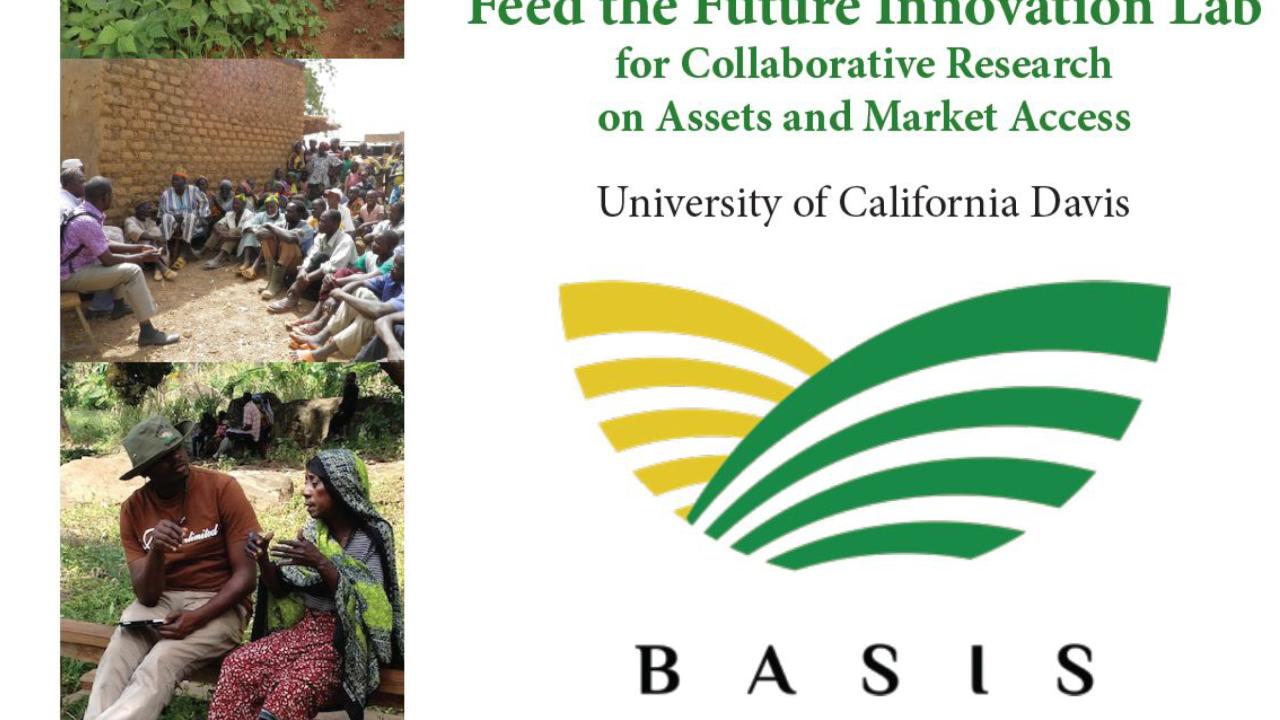
Executive Summary
While many organizations in the agricultural sector focus on moving the technological frontier upward into realms of increasingly higher returns, producing superior yield seeds for example, there has been less of an emphasis on research to understand how to help farmers actually realize that maximum potential. The BASIS AMA Innovation Lab has assembled a portfolio of projects that focus on key topics designed to bridge the gap between what is possible given currently available technologies and the experiences of most developing country agriculturalists.
Advancing the technological frontier will in the long run improve rural livelihoods and food security. Despite significant advances in existing technologies expanding what is possible, however, average small farm yields fall well below what is possible because of low adoption of these technologies. The BASIS AMA Innovation Lab believes that more importance must be placed on helping farmers close these yield gaps. By better understanding and addressing the constraints to the adoption of agricultural technologies, we can raise the capacities and capabilities of smallholder farmers, bringing increased productivity and security to those most in need.
BASIS research is identifying strategies and interventions to reduce this yield gap. Some of the key topics covered in the BASIS research portfolio include the following:
- Risk and Liquidity: Farmers are often hesitant to adopt beneficial technologies because they are seen as prohibitive income and production gambles. New financial instruments like index insurance and other support systems such as improved credit access are helping to mitigate these un-hedged risks, allowing farmers to take on prudential risk and invest more securely in their futures.
- Beliefs and Behavior: Cultural, behavioral, and educational factors have significantly constrained farmers’ acceptance of new technologies. Effective mechanisms are being tested to improve the smallholder farmer’s knowledge and decision-making about the acquisition and deployment of advanced technologies. Research into combating the cultural and behavioral limitations to technology adoption are also proving very promising - allowing farmers, for example, to overcome traditional prejudices against buying new higher-yielding seed.
- Profitability: The yield gap can be particularly immovable when available technologies, once applied, do not actually benefit farmers. Poor soil, lack of access to markets, and unprofitable input prices, all hinder a farmer’s ability to sustainably improve food and wealth security. Tailoring technologies to take into consideration agro-ecological differences enables those modified technologies to be successfully scalable in heterogeneous conditions. The adaptation of new mechanisms for small farmers to collectively capture economies of scale, navigate local commercial systems, and remain a part of the value chain, is an encouraging area of research that will help to relax constraints and allow the yield gap to close further.
This year BASIS also received an exciting new associate award that aims to explore the potential complementarities between agricultural and financial technologies to stabilize agricultural households and open opportunities for investment and growth. This study will explore determinants of uptake of these technologies, as well as to measure the impacts on on-farm investment levels and nutritional outcomes. As projects approach the end of their implementation timelines over the next two years, BASIS looks forward to increased synthesis of lessons learned across projects, and improved dissemination of these results and lessons to the broader stakeholder community in the continued goal of closing the yield gap for smallholder farmers.
